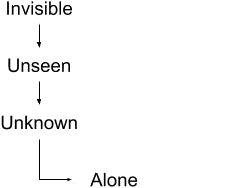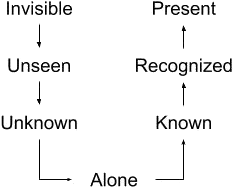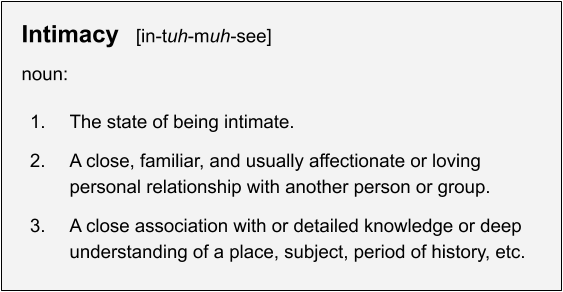This post describes, in part, the effects of a degenerative neurological condition called Huntington’s Disease. Any negative behavior on the part of my wife should be attributed to that condition. Any negative behavior on the part of myself should be attributed to my need for God’s ongoing grace.
If you would like to read our story from the beginning, you can start here: How We Got Here…
This week has brought a big answer to prayer.
As I have mentioned before, I lost my job in early September. This change allowed me to care for Janet full time, but our finances were beginning to show the strain. To make a long story short, I was approached for a position up in the Fort Worth area. This will complicate matters, but there are reasons that I believe that this is the right step for now. To begin with, when the recruiter asked me how much I would need in salary, I took my old salary, added $6k to it and gave him that number. To be frank, in the current business climate I didn’t think that figure was even possible but I figured if I saw that, it would be a sign that this was the right move for us.
This week, after interviewing with the company twice on the phone, they sent me an offer letter $5k higher than the “unrealistic” number I had proposed! When I told Janet about the job, she smiled at me as best she could and said, “I’m proud of you.”
In terms of Janet’s condition, she wakes up very infrequently now, and hasn’t wanted to eat anything in three days – maybe four by the time you read this. There is no sign that she is in any discomfort or pain. I have had a lot of time to think about all the things that she has done with her life and despite everything, my main feeling at this point is one of gratitude for being a part of it all.
One of the things that distresses me most at this point in my life is that the lack of recognition the everyday people seem to be getting for their deeds of heroism and accomplishments. The thing that makes this world great is not so much the actions of a few “greats,” whether they be monarchs, elected leaders, or faceless bureaucracies. Greatness comes from the thousands of unrecognized actions by the “common” people.
In 1942, when WWII was in its darkest moment, Aaron Copeland wrote a piece to acknowledge the millions of “common” men and women that had died and were about to die in the great cause of beating down fascism. Called Fanfare for the Common Man the piece’s intend was to laud the life contributions of people who do not find their way into newspaper headlines. In fact, as the inscription on the Tombs of the Unknown Soldiers reminds us, sometimes even their names are lost – and are only remembered by God.
In a way that is enough, but in another it is not. Today too many people take for granted the world in which they live and disrespect the past because it does not measure up to their own personal standards. The greats are belittled and the common are ignored so that in the end, all that is left is self-centered grumbling. Although there are no easy solutions to this problem, we do have a place from which we can start. When a loved one dies, take a moment to write a tribute to who they were and what they, with the grace of God, accomplished – warts and all. Then post that tribute online, send it as a letter to the editor of your local newspaper, include it in an obituary, even send it your political representatives. That will be a fitting tribute and will lift up future generations.
❦ ❦ ❦ ❦ ❦ ❦
I have written before about one kind of loneliness that caregivers can experience. That is where you are lonely for the companionship that you used to derive from the person you are caring for, but now no longer can. Then there is the loneliness that can result from the feeling that no one really knows you or understands you.
But this week I want to talk about another kind of loneliness. This impersonal loneliness comes from being surrounded by people who have no idea what you are going through, and so can’t even begin to relate to your feelings, needs, or priorities. It goes far beyond simply not understanding you, it is like they are living on a different planet or in a different world from you. This loneliness is made all the worse because the people creating it have no understanding of their own blindness. They go through life blithely assuming that their opinions are not just their opinions, but rather are normative for the whole world. Consequently, it is inconceivable to them that anyone should feel any different than they do – and if you do, well obviously you are the problem.
So where do these jerks come from? That’s the bad news. Too often those jerks are you before you became a caregiver. Looking back, it should be obvious that being a caregiver fundamentally changes your perspective. In my life, Reality has wrought that change using two main tools:
- Different experiences – When one is living a life of unchanging sameness, it’s easy to fall into the trap of thinking that the world around you right now is just the way life is. Much is said today about people living in an “echo chamber” that reinforces one set of ideas to the exclusion of all others. However, experiencing differing things breaks down the walls of even the strongest echo chamber. One thing, therefore, that all caregivers must fight against is the desire to run back to some (probably mythical) sense of “normal.” Instead we must embrace the changes that are flooding our lives and the wisdom that the changes are producing in us.
- Challenges to my belief system – Ever had the experience of thinking to yourself that “God will take care of me if X, Y, or Z happens,” only to have X, Y, and Z all happen simultaneously? These sorts of experiences offer two sorts of opportunities. First, they allow you so see that what you previously held as a theoretical likelihood, is a fact. In other words, before you believed in God’s care, now you have an actual experience.
Second, they give you the opportunity to stretch and grow strong. For example, I once read about a teacher who brought into class a clutch of chicken eggs that were ready to hatch. As the students watched the first couple of chicks struggle to break out of their shells, they began to feel sorry for them, so when the other two eggs started to hatch the students carefully cracked the eggs open for them so they didn’t have to struggle so hard. However, it turned out that their help really wasn’t very helpful at all because the last two chicks were weak and it took them many weeks to catch up with their two older siblings.
Finally, in closing, I feel like I need to offer one disclaimer: All lessons learned in life are provisional – but not because as Reality changes, it does not. The Ultimate Reality, God, does not change.
But if the One that I am trying to learn about is truly unchanging, why is my understanding always provisional? Because, for one, the student (me), far from being an apt pupil, is, in fact, often rather slow-witted. But more importantly, the subject of the learning is truly infinite in depth and scope. For example, I learn that God is Love – and that is certainly true. But now the hard part: Define Love. That lesson will likely take me centuries to grasp.
The good news that I can always depend on, however, is that the Teacher is slow to anger and abounding in steadfast love. This news holds a lot of comfort for us. But what about the “jerks” I mentioned before that haven’t had the experiences that we have. We could give into the anger and scream at them, “You don’t understand my world!” However, a better path is to forgive as we are forgiven – remember we used to be part of them.
In Christ, Amen ☩
❦ ❦ ❦ ❦ ❦ ❦
A prayer for when you are feeling alone…
“Blessed are You, Lord God, King of the Universe. It is right that I should at all times and in all circumstances bless You for Your creation. But today I want to bless You especially for being a stable reality even when I’m not sure where things are going. Thank you for being the solid rock upon which I can stand. Please give me the confidence to continue walking even when all I can see is a tiny pool of light by my feet. Amen.”



